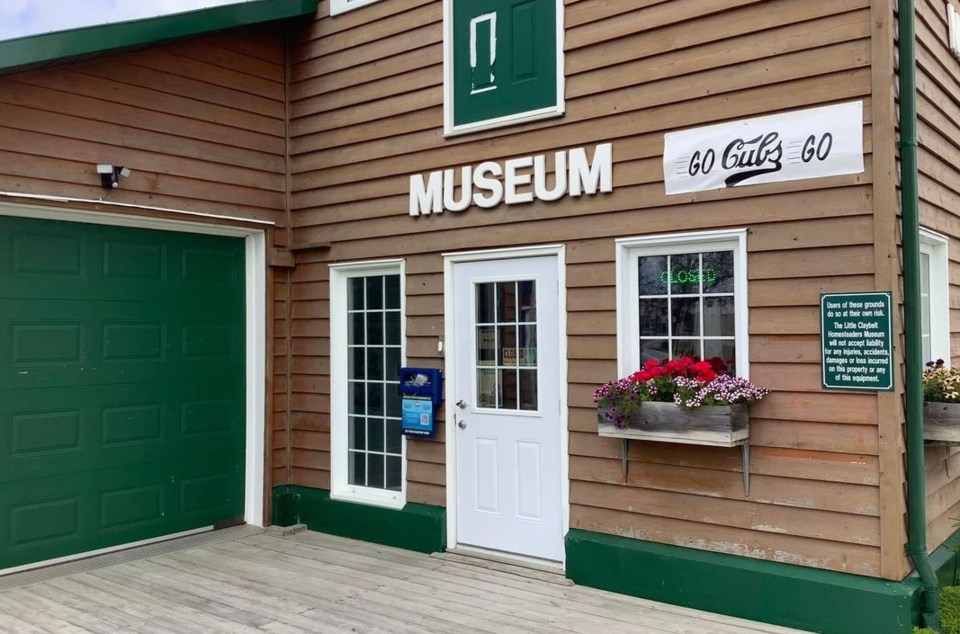TEMISKAMING SHORES/COBALT - Four area museums have been unsuccessful this year in obtaining funding through the Canada Summer Student Jobs program.
The Bunker Military Museum, the Cobalt Mining Museum, the Haileybury Heritage Museum, and the Little Claybelt Homesteaders Museum all have to find other ways to fund students for the summer months.
Even Nipissing-Timiskaming Liberal MP Anthony Rota states he is disappointed in the outcome, and that national criteria overshadowed local criteria this year.
The museums have traditionally received federal funding for summer hires.
The museums all state they were given no advance warning by the federal government that this year they would not receive grants.
Bunker Military Museum secretary Marg Harrison said in a telephone interview that a list of successful area employers was provided by the federal government online, and most funding for the program has gone to private businesses.
She said it is "going to be very difficult" for the Bunker Military Museum but there will be one summer student this year.
She noted the Bunker is one of a few area museums that have a Catch the Ace fundraiser that helps with museum expenses.
The Cobalt Mining Museum has had summer students through the federal government program for at least 20 years, said curator Peter Greyson in a telephone interview.
"They're absolutely essential for running the underground tour," he said.
The museum offers summer tours of the Colonial Adit Underground Mine owned by Agnico Eagle Mines. Greyson said the museum is able to offer the tours because of the extra summer staff that ensures safety and carry out other jobs needed to make the tours successful.
The underground tours will continue this summer because the museum has accessed additional funding.
"We managed to scrounge around and find ways of doing it this summer, but if this is a permanent arrangement with Canada Summer Jobs, we're going to have to rethink what we're doing here," he said.
Other funding has been accessed through other programs, tapping into reserves, and asking for donations, he stated.
"We normally get three summer students from Canada Student Summer Jobs. We also get a couple of summer students from Ontario. We did get the Ontario ones."
The federal summer student program provides about $5,000 for each student, meaning $15,000 additional funding is required to fill the positions without federal assistance. Coming up with that money "is not easy to do in a smaller community," he noted.
CLAYBELT AND HERITAGE
Little Claybelt Homesteaders Museum vice-president Margaret Villneff said it normally gets funding for at least two summer students through the program. There was one year that they had funding for three, but this year there is none.
She expressed hope that museum secretary-treasurer Elizabeth Pahkala will be able to access funding to hire summer students this year.
She envisions many people will be reaching out to those funding sources.
She said students assist visitors who come to the Little Claybelt.
"Some people come in and they're looking for genealogical answers to their relatives that possibly used to live here. Sometimes we've had special projects that (the students) work on in the summer. Sometimes there's a group of artifacts that need refurbishing or cleaning, or cataloguing."
Books and pictures also need to be cared for and correctly placed in the collection.
"When people come in they will talk to them and show them around and answer their questions, but quite often we have special things out that we want to concentrate on getting properly filed, or research done on them."
This year though, "we're sort of left in the lurch."
Sarah Johnston of the Haileybury Heritage Museum also expressed disappointment in the lack of funding, and the hope that next year funding will be available for area museums.
Rota acknowledged "how significant the funding is to museums" and its importance in helping museums continue to operate.
"A lot of MPs have expressed disappointment in the outcome," he said.
The program’s national criteria were for: youth with disabilities; black and other racialized youth; Indigenous youth; small business and not-for-profit organizations that self-report from groups that are underrepresented in the labour market; and small business and not-for-profit organizations in environmental sectors.
"There was a lot more emphasis on the local labour market," Rota said.
He expressed his view that the guidelines for determining successful employers need to be reconsidered for next year to prevent a similar impact on museums from reoccurring.
"Our museums make a difference," he said.
Darlene Wroe is a Local Journalism Initiative reporter with the Temiskaming Speaker. LJI is funded by the Government of Canada.



